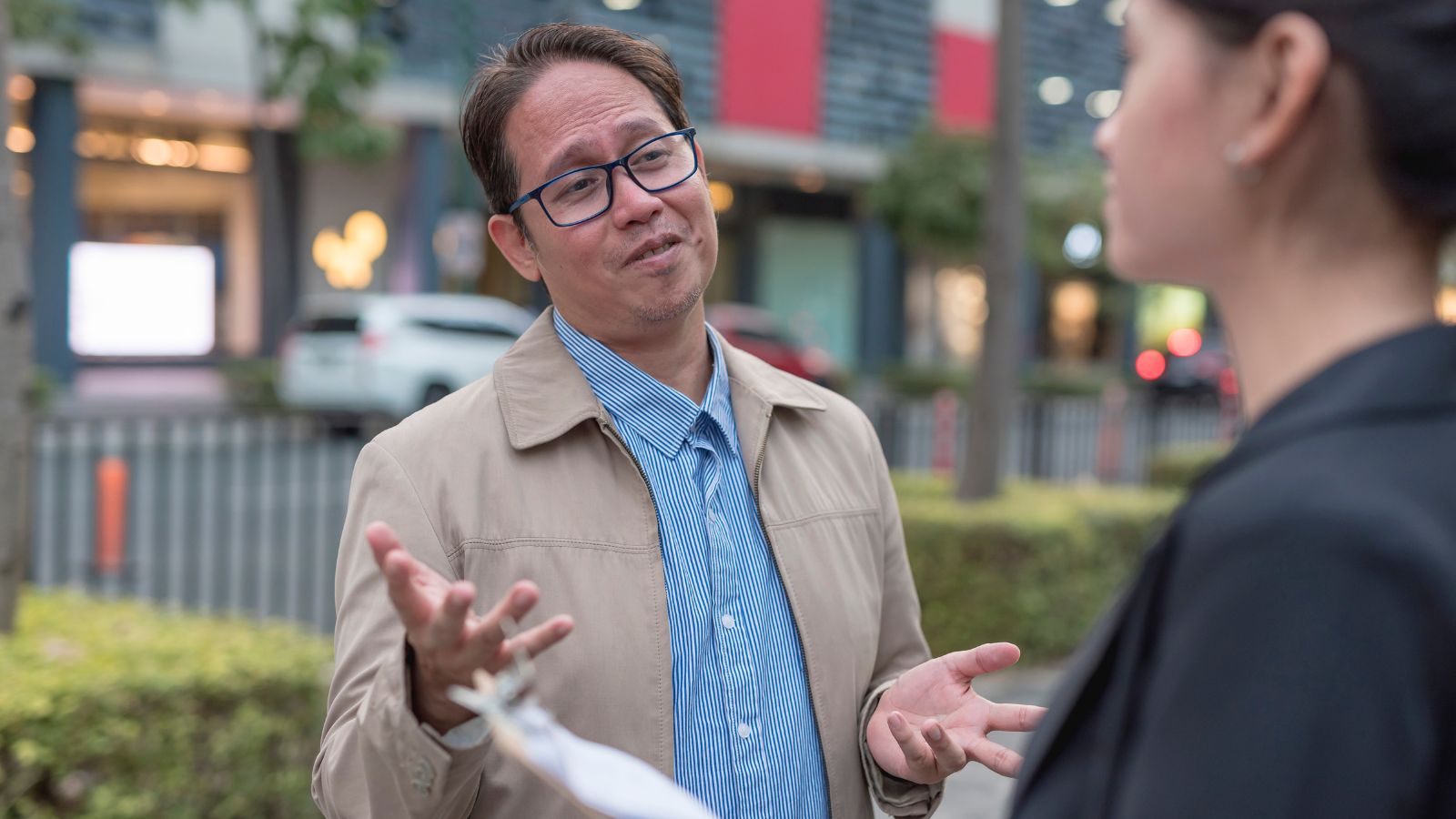Spotting a covert narcissist can feel like trying to find a needle in a haystack as they’re not the flashy, over-the-top type of narcissist you’d expect to see, but don’t be fooled; they’re still masters of manipulation. Instead of grand gestures or outright arrogance, covert narcissists use subtle tactics to keep the spotlight on themselves, allowing them to keep their true nature hidden.
“I’m not like other people you’ve met.”

At first, this sounds exciting and unique, but beneath the surface, you’ll notice it’s a sneaky way of claiming superiority. This phrase suggests they think they’re a cut above the rest and crave recognition for their supposed uniqueness.
It’s a way to draw attention to themselves, even if they don’t elaborate, and a way to say, “I’m special, and you should feel lucky to know me.” It might sound charming at first, but over time, it starts to feel self-serving and repetitive.
“I’ve always been this way.”

Instead of taking responsibility for their actions, a covert narcissist will claim they’re just being their true, authentic selves. It’s their way of shutting down any attempts to call out toxic behaviour, and by making their actions seem unchangeable, they avoid growth or accountability.
“People just don’t understand me.”

This one might tug at your heartstrings to start with, but for a covert narcissist, it’s all about creating a sense of mystery while painting themselves as misunderstood geniuses. By saying this, they subtly claim they’re on a different level from the rest of us. They want people to think they’re too complex to grasp and then use it as an excuse for everything.
“I didn’t mean it like that.”

We’ve all heard this one before, and it’s often a covert narcissist’s go-to phrase after a hurtful comment. Instead of apologising, they focus on their intention, brushing off the impact of their words and making you question your own feelings. It’s an effective way of maintaining control while making you feel overly sensitive or dramatic for calling them out.
“I’m such a giving person.”

It’s common for covert narcissists to talk about their generosity, but don’t be fooled into thinking that they’re actually kind and genuine people. Instead, it’s all about fishing for compliments, as they love to inflate small gestures and expect over-the-top gratitude in return.
If you don’t react the way they expect, they might even double down, reminding you of all the “selfless” things they’ve done. They don’t care about giving but rather the recognition that they expect to come with it.
“I don’t need anyone else.”

At first glance, this sounds like independence, but dig deeper, and you’ll find it often masks bitterness or not being able to form healthy relationships. By saying this, they position themselves as superior to those who value connection, hiding their fear of vulnerability behind their ability to be self-sufficient.
It also works as a convenient excuse to avoid responsibility for their actions or to engage in the give-and-take required in genuine relationships. For a covert narcissist, it’s less about independence and more about maintaining control.
“I’m only trying to help.”

This phrase often hides a hidden agenda and usually some form of control or superiority. They’ll offer unsolicited advice or meddle in a situation by saying that they’re ‘helping,’ when actually, their true motive is to assert dominance. Their help, as it turns out, is more about their ego rather than your well-being.
“I’m not really bothered by what people think.”

Don’t be fooled by a covert narcissist saying this to you, as they’re actually obsessed with how they’re perceived. They usually say this phrase when they’re feeling insecure about something, and if someone questions them or criticises their behaviour, they’ll say this as a way to appear calm and collected. When actually, the truth is, they’re deeply invested in other people’s opinions—they just won’t admit it.
“It’s not my fault people feel that way.”

This phrase is a classic way of dodging responsibility, and by blaming others for their feelings, they get to avoid any kind of accountability. It’s a sneaky tactic that leaves others feeling invalidated and questioning whether they’re overreacting. They’ll often follow this up with claims that people are ‘too sensitive’ or are ‘taking things the wrong way’ as a way to stay in the right while everyone else feels wrong for speaking up.
“I didn’t want to make a fuss.”

This might sound modest, but don’t be fooled, as it’s actually a backhanded way of drawing attention to themselves while appearing humble. By claiming to avoid the spotlight, they often end up taking centre stage. It’s like they’re saying, ‘Look at me, being so unnoticed!’ They might use this phrase to gain sympathy or move attention onto others, but it always circles back to making themselves the focal point in a situation.
“I just don’t fit in anywhere.”

One thing about this phrase is that instead of reflecting genuine struggles, it’s often used to highlight their so-called uniqueness. Covert narcissists will frame themselves as too special to belong anywhere so that they can dodge any real connections in favour of self-imposed isolation where they can receive sympathy.
“I’ve always been the black sheep.”

Playing the misunderstood outsider is another one of their favourite tricks, which means they’ll talk endlessly about how they’ve been overlooked, excluded, or mistreated to make you feel sorry for them. But don’t think this is about connecting over shared struggles; it’s actually about a covert narcissist wanting admiration for their supposed resilience.
“I’m so tired of drama.”

Covert narcissists claim to hate drama, but let’s be honest, they’re often the ones stirring the pot. When they use this phrase, they’re usually distancing themselves from the chaos they’ve helped create. It’s a clever way to move attention away from their actions and pin the blame on others.
By declaring how much they ‘despise’ drama, they’re effectively painting themselves as the peacekeeper while portraying everyone else as overly dramatic or unreasonable. In reality, they often thrive on conflict; it’s just hidden behind their fakeness.
“I’ve just been through so much.”

This one is usually said as a sympathy magnet, so don’t let the sentimentality fool you. While it might sound like they’re opening up about their struggles, it’s often a way to redirect the focus back to them.
By positioning themselves as someone who’s endured endless hardship, they minimise other people’s experiences by making it all about their own suffering. It’s not uncommon for them to escalate any of their sorrowful tales if the attention isn’t solely on them.
“People always let me down.”

It’s common for covert narcissists to use this phrase so that it shifts responsibility for failed relationships onto others while conveniently ignoring their own behaviour or choices. They’ll talk about how unreliable or untrustworthy people are, making themselves look like the victim. Not only does this guilt others into staying close, but it also allows them to sidestep any accountability.
“I’m not great at taking compliments.”

At first, this might seem modest, but it’s often said so people will give them more compliments. By pretending to be uncomfortable with compliments, they encourage others to reassure them or pile on additional admiration. It’s a cycle that keeps the focus firmly on them while making it seem like they’re being humble.
In reality, this phrase is less about modesty and more about them needing validation without having to ask for it.
“I just don’t trust anyone.”

This phrase might sound like it’s rooted in painful experiences, but it’s often just another defence mechanism. Covert narcissists use it to justify keeping people at arm’s length so they don’t have to create a genuine connection with anyone. It’s their way of avoiding intimacy by saying that they’ve been wronged too many times in the past, which is often a lie.

